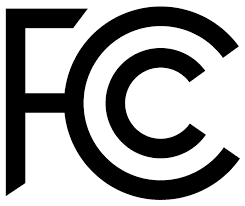Introduction
In today’s competitive job market, having the right certification can open doors to high-demand careers in telecommunications, broadcasting, and electronics. One such essential credential is the FCC certificate. Whether you’re an aspiring technician, radio operator, or electronics enthusiast, FCC certification validates your technical skills and ensures you’re operating within federal regulations.
This article provides a deep dive into FCC certificate programs, including what they are, types of certificates, benefits, eligibility, and how to get certified.
What is an FCC Certificate?
The Federal Communications Commission (FCC) issues certificates and licenses to individuals and organizations involved in communication systems. An FCC certificate verifies that the holder has met specific technical and legal standards necessary to operate communication equipment such as radios, marine devices, or broadcast stations.
Why Choose an FCC Certificate Program?
FCC certifications offer numerous advantages:
- ✅ Legally operate specialized equipment
- ✅ Boost job opportunities in communication and tech fields
- ✅ Enhance your credibility and expertise
- ✅ Meet employer or industry compliance standards
Who Needs FCC Certification?
You may need an FCC certification if you work or plan to work in:
- Marine and aviation communication
- Amateur and commercial radio operations
- Broadcast engineering
- Two-way radio service
- Telecommunications equipment repair and maintenance
Top FCC Certificate Programs You Should Know
Here are some of the most sought-after FCC certification types:
1. General Radiotelephone Operator License (GROL)
- Most popular FCC license
- Required for operating, maintaining, or repairing radio transmitters in aviation, maritime, and land mobile radio services
- Also needed for broadcast engineers
2. Technician Certificate
- Entry-level license for amateur radio operators
- Requires passing a basic exam (Element 2)
- Great for hobbyists and beginners
3. Amateur Extra Class License
- Highest class for amateur radio operators
- Requires passing advanced knowledge exams
- Offers full privileges on all amateur bands
4. Marine Radio Operator Permit (MROP)
- Mandatory for ship radio operators
- Required by the U.S. Coast Guard for commercial vessels
- Focuses on marine communication procedures
5. Restricted Radiotelephone Operator Permit (RR)
- For non-technical users like pilots and ship captains
- No written exam needed
- Valid for a lifetime
6. Radar Endorsement
- Additional endorsement for GROL holders
- Required for working with radar systems aboard ships
How to Get FCC Certified
Step 1: Choose the Right Certification
Determine which license suits your career goals.
Step 2: Prepare for the Exam
Study the relevant material. You can find many online resources, guides, and prep courses.
Step 3: Take the Exam
Most exams are administered by Commercial Operator License Examination Managers (COLEMs) approved by the FCC.
Step 4: Apply Online
Once you pass, apply through the FCC’s Universal Licensing System (ULS) and pay the applicable fee.
Where to Take FCC Certification Programs
You can prepare for and take FCC certification exams through:
- Accredited colleges or technical schools
- Online training platforms like Coursera, Udemy, and HamTestOnline
- FCC-approved COLEMs
Some institutions offering specialized programs include:
- National Radio Examiners
- AEA Technology Training Center
- Houston Marine Training Services
Cost of FCC Certificate Programs
Costs vary depending on the license and training provider:
- Exam fees: $25–$60
- Training courses: $100–$500+
- Application fee: Around $35 (subject to change)
Validity and Renewal
Most FCC certificates, like the GROL and MROP, are valid for life and do not require renewal. However, staying updated with changing technology and regulations is still recommended.
Benefits of FCC Certification for Career Growth
- 🚀 Increased Employability – Employers prefer certified professionals.
- 💼 Career Advancement – Opens doors to senior technician or engineering roles.
- 🌍 Global Recognition – Valuable for maritime and aviation jobs worldwide.
- 📡 Hands-On Knowledge – Gain real-world experience with communications systems.
Industries That Value FCC Certification
- Broadcasting (TV, Radio)
- Aviation and Marine Operations
- Emergency Services (Police, Fire, EMS)
- Telecommunication Companies
- Satellite Communication
Tips for Passing the FCC Exam
- Focus on the official FCC Elements related to your certification.
- Use practice exams to test your readiness.
- Enroll in a reputable prep course if needed.
- Join online forums or study groups for support.
Frequently Asked Questions (FAQs)
Q: Is FCC certification mandatory for all telecom jobs?
A: No, only specific roles require it, particularly those involving radio frequency transmission.
Q: Can I get certified online?
A: Yes. Exams are often available online through COLEMs and training providers.
Q: How long does it take to get certified?
A: Depending on preparation, it can take from a few weeks to a couple of months.
Q: Do I need a background in electronics?
A: Not necessarily. Entry-level licenses like the Technician Class are accessible to beginners.
Conclusion
FCC certificate programs are a solid investment in your professional future, especially if you’re pursuing a career in broadcasting, telecommunications, aviation, or maritime industries. With lifelong validity and widespread recognition, these certifications empower you to stay compliant, competitive, and skilled in today’s tech-driven world.
